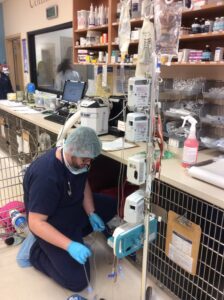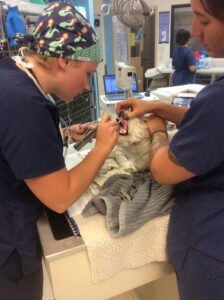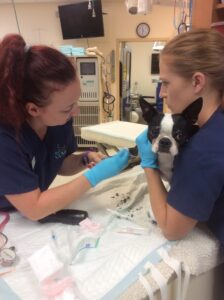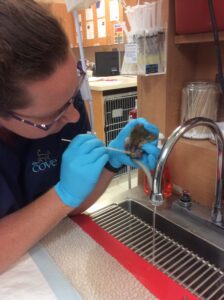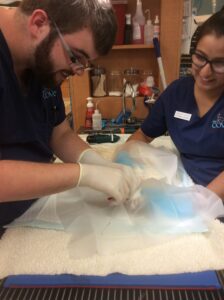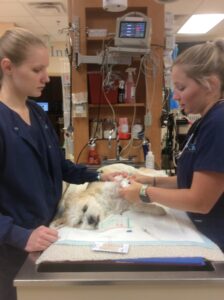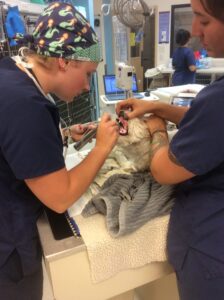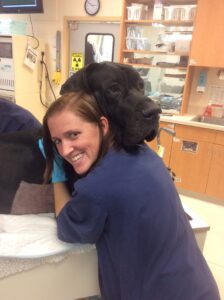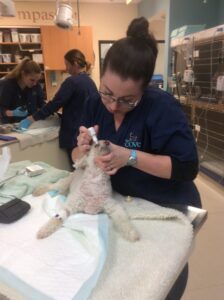It’s National Veterinary Technician Week! Although we value their hard work and commitment every day of the year, we think this is a perfect time to call attention to our extraordinary team of veterinary technicians and highlight our appreciation of their hard work, skill, and professionalism.
Veterinary technicians provide compassionate, skilled veterinary care, assisting veterinarians just as a human healthcare nurse helps a physician. Additionally, veterinary technicians offer compassion and support to pet families when their furry loved one is injured or ill.
What is a Licensed Veterinary Technician?
Licensed veterinary technicians are an integral part of your pet’s health care team. In addition to taking your pet’s medical history and assisting in the exam room, veterinary technicians perform a multitude of jobs at a practice, including:
- Laboratory technician
- Anesthesiology – perform and monitor
- Surgical assistance
- Pharmacy technician
- Specialized nursing care
- Grief counselor
- Radiography technician
- Emergency care
- Phlebotomist
- Dental hygienist
- Patient Advocate
- Interacting closely with patients and their families
And a myriad of other tasks to support veterinarians and the health of your pet.
- Img 3493
- Img 8247
- Img 7637
- Img 7720
- Img 8016
- Img 8232
- Img 8247
- Img 8893
- Img 8913
How to Become a Veterinary Technician
Veterinary technicians go through a significant amount of education to become certified, just as a human medicine nurse does (but unlike a human nurse a veterinary technician must know about multiple species).
Veterinary technicians typically have two to four years of secondary education and an Associate’s or Bachelor’s degree in Veterinary Technology. Veterinary technicians must pass a rigorous four-hour examination administered by the American Association of Veterinary State Boards to become credentialed, and must complete continuing education credits to maintain their license. There are over 230 accredited Veterinary Technology Programs in the country, in either two or four-year degree options. There are also a few accredited online distance-learning programs.
Veterinary technicians can choose to further their education and become a specialist in a wide variety of areas from anesthesia to animal behavior, emergency and critical care, to internal medicine. They can also work in places such as zoos, aquariums, the military, or research laboratories. They are even often among first responders when there is a disaster, in order to help animals in trouble.
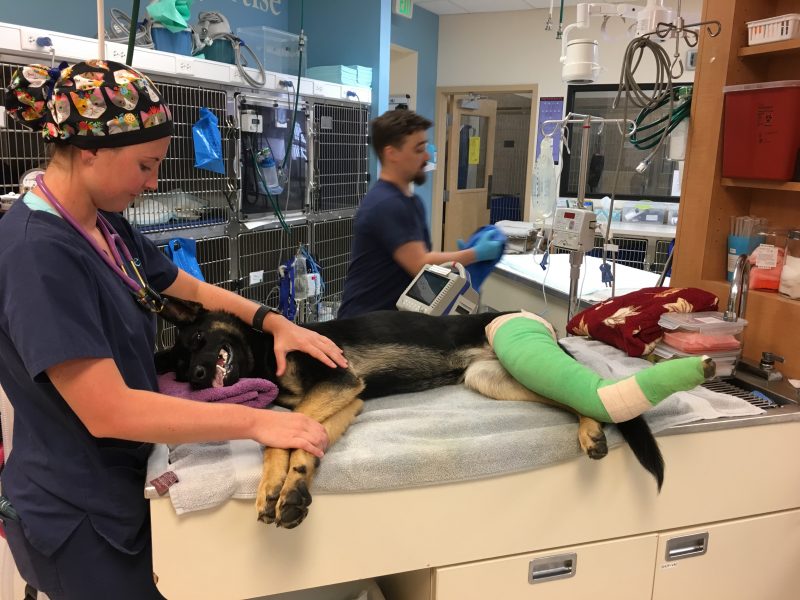
If all that sounds like a lot of work, it is! Veterinary technicians are essential team members here at The COVE. Their compassionate care of every patient and strong relationships with our patient’s families are indispensable to the work we do in caring for your pet. We’re proud to have these talented licensed veterinary technicians (LVT) on our team.

This week, tell your veterinary technician “Thank you.” We know we will.
About Us
The COVE’s veterinarians and staff wholeheartedly embrace the core values of community, collaboration, commitment, compassion, and integrity. This focus ensures that pets, the people who love them, and their primary care veterinarians have as positive and affirming a healthcare experience as possible, regardless of the circumstances that bring us all together.

